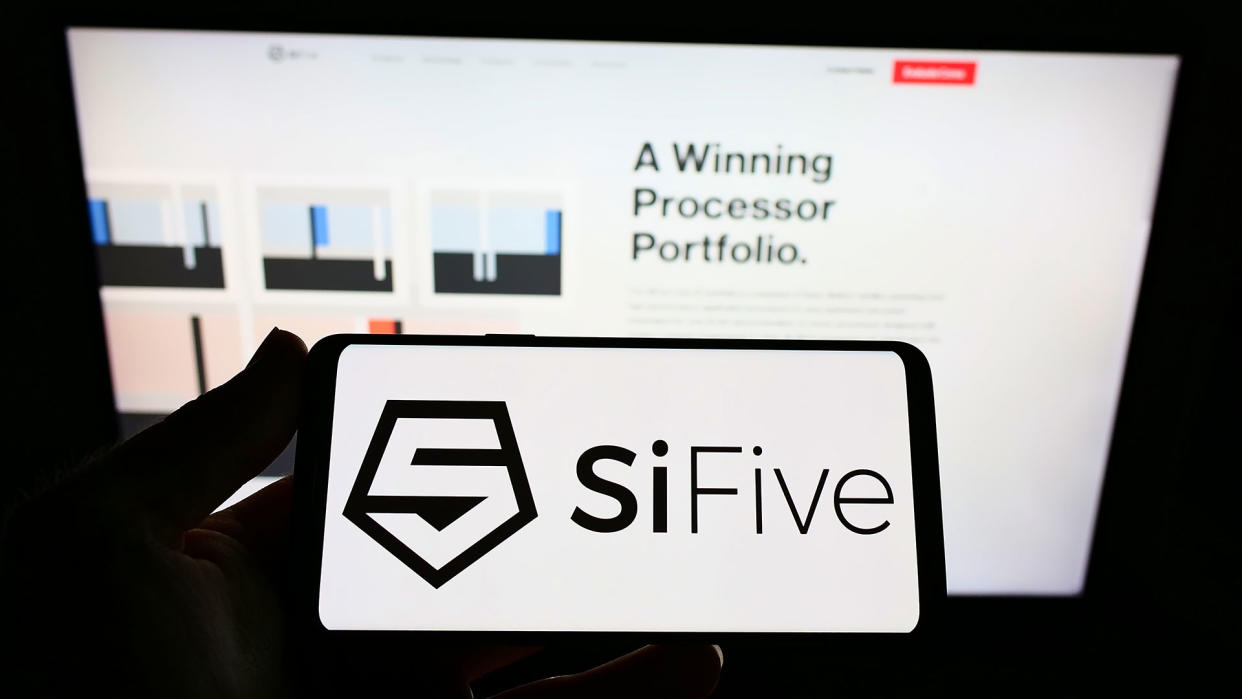SiFive selects a faster Chinese-made RISC-V CPU instead of an Intel chip for its latest development board

SiFive has unveiled the HiFive Premier P550, a new development board using the RISC-V architecture. It will be the first commercially available out-of-order RISC-V development board. Also intriguing (and surprising) is that the new hardware includes a Chinese-made Eswin SoC, even though SiFive is an Intel partner. The new development board is designed for many different market segments and applications, including machine vision, video analysis, and AI.
The P550 comes with 16GB of LPDDR5-6400 memory and a 128GB eMMC SSD for "fast bootable" storage. Connectivity comes in the form of a single PCIe 3.0 x4 interface connected to an x16 slot on the motherboard along with five USB 3.2 Gen 1 ports.
The Eswin EIC7700 SoC features four P550 cores, 256KB of L2 cache, and 4MB of L3 cache. The main selling point of the new chip is its out-of-order capabilities, which allow the processor to reorder instructions to increase throughput and performance. The superscalar P550 can issue three instructions per cycle per core.
Out-of-order CPU designs have been around for a long time, with Intel first adding the feature in the Pentium Pro back in 1995. Out-of-order architectures tend to use more power but offer greater performance. Out-of-order chips are also more vulnerable to side-channel attacks. Smartphones stuck with in-order designs until after 2010, but today, nearly all modern smartphones also feature out-of-order chip architectures.
The P550 SoC also comes with an integrated GPU (no details were provided other than that it offers 2D/3D acceleration), hardware video encoder and decoder, NPU, DSP, MIPI DSI, and a security subsystem. The P550 is designed as a cheaper alternative to the P550 Pro, which debuted last year. The latter sports significantly better connectivity and includes an Intel-made RISC-V "Horse Creek" SoC. Again, it's interesting that the P550 and P550 Pro use completely different core designs.
SiFive partnered up with Canonical to make the P550 compatible with Ubuntu — one of the most popular flavors of Linux. According to Gordan Markus, Silicon Alliances Director at Canonical: “Thanks to our collaboration with SiFive, developers using the HiFive Premier P550 board will be able to innovate at speed with Ubuntu. Additionally, Canonical’s software and services will accelerate time to market, and ensure long-term support and security maintenance for our enterprise partners.”
The P550 has a lot of potential, but availability might be its Achilles heel. According to The Register, the HiFive Pro P550, which launched a year ago, is still almost impossible to find. Hopefully, this same fate doesn't befall the P550.
Since the P550 uses an entirely different CPU from its Pro counterpart, that could help improve availability. SiFive partnered with Intel to create the Horse Creek SoC found in the P550 Pro, but Intel hasn't had a great track record with RISC-V and appears to have no problems killing its own RISC-V projects if necessary.
Due to the P550 Pro's lack of availability, it seems like the Horse Creek CPU was a complete failure — even though Intel says this wasn't the case. Regardless, there must be a very good reason why SiFive (again, a partner with Intel), decided to swing the pendulum the other direction and chose a Chinese-made RISC-V CPU for the P550.

